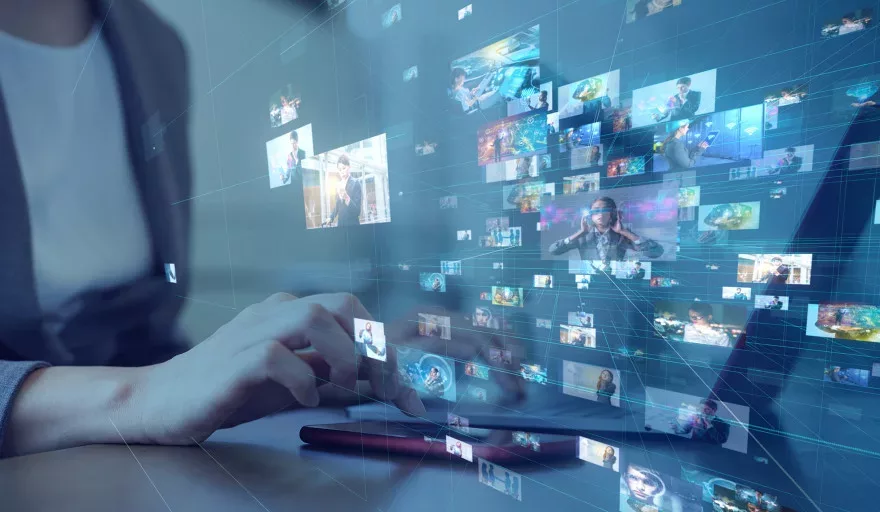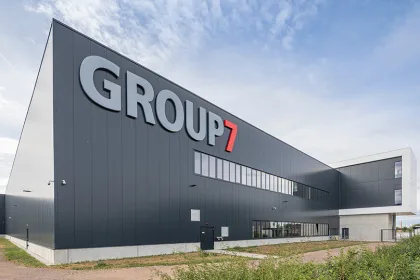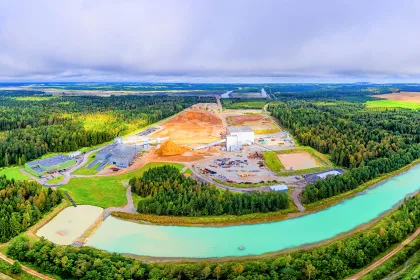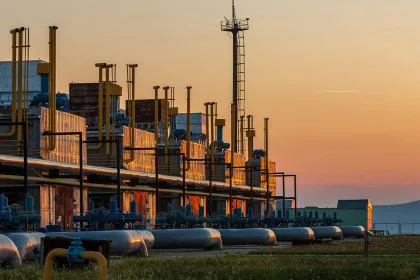We spoke to Wojciech Bajda, Head of Ericsson GCC, about the company’s provision of 5G across the globe in a growing digital age.
- Q&A WITH WOJCIECH BAJDA, HEAD OF ERICSSON GCC
- To start with, can you tell us about your career to date and explain how you became interested in the technology industry?
- What is your take on the industry in UAE at the moment?
- What, for you, makes Ericsson stand out in the industry?
- Can you tell us about the company’s recent achievements?
- Can you tell us about any key investments you’re working on that you’d like to pay special mention to?
- How important are partner and supplier relationships to the success of your business?
- How influential have staff been during the pandemic? How do you try to empower them and recognise the contributions that they make?
- Looking ahead, what are your key priorities for the coming year?
2021 has given rise to a global digital sphere like never before.
Following the impact of the COVID-19 pandemic, the accessibility to online communication and services has become a necessity, not just an option.
Wojciech Bajda, Head of Ericsson GCC, is an ICT veteran with over 20 years of experience working across three continents in numerous executive roles. He joined Ericsson Poland in 2000 as a Sales Manager, during which Bajda took on varying account management positions, including the responsibility for the biggest Ericsson account in Poland at the time – T-Mobile.
Headquartered in Sweden, Ericsson was originally founded by Lars Magnus Ericsson in 1876.
Alongside his wife Hilda, Ericsson became known as a firm that pioneered communications technology – what started as a small factory has evolved throughout its history into the renowned global company we see today.
Ericsson is one of the leading providers of Information and Communication Technology (ICT) to service providers. The company enables the full value of connectivity by creating game-changing technology and services that are easy to use, adopt, and scale, making its customers successful in a fully connected world. Its comprehensive portfolio ranges across networks, digital services, managed services, and emerging business; powered by 5G and IoT platforms. Ericsson is also the first company to launch live commercial 5G networks on four continents.
Q&A WITH WOJCIECH BAJDA, HEAD OF ERICSSON GCC
To start with, can you tell us about your career to date and explain how you became interested in the technology industry?
Wojciech Bajda (WB): In 2009, I started my international assignment with Ericsson and worked in Africa, where I managed Orange and Millicom Accounts across all the Sub-Saharan African region. In 2013, I moved to Ukraine and led Ericsson’s business in Eurasia, which consisted of 11 countries from Belarus to Mongolia.
Following this, in 2017, I was appointed as the Head of Customer Unit Industry and Society within the Middle East region. In this role, I was responsible for driving business growth and capturing market opportunities within the Middle East and in new business areas, with a special focus on energy and utilities, public safety and security, intelligent transport systems, and smart cities. Later that same year, I assumed responsibilities as the Head of Gulf Council Countries at Ericsson Middle East and Africa, and Country Head of Ericsson UAE.
What is your take on the industry in UAE at the moment?
WB: It is probably the most exciting time we have ever experienced due to phenomenal opportunities 5G brings to industries and society. 5G is expected to reach 130 million subscriptions in the Middle East and North Africa (MENA) region by 2026, representing 15 percent of total mobile subscriptions. These forecasts are included in the November 2020 edition of the Ericsson Mobility Report, along with projections for data traffic growth, and regional subscriptions.
Commercial 5G deployments with leading service providers have taken place in the region during 2019 and 2020 with 5G subscriptions forecast reach close to 1.4 million by the end of 2020, mainly in the Gulf countries. The introduction of 5G will make it possible for communications service providers to improve their business in various ways and offer incredible opportunities for different industries to digitalise their operations. The challenge for service providers preparing for 5G is to keep up with the high expectations of early adopters and support enterprises with innovative use cases.
What, for you, makes Ericsson stand out in the industry?
WB: Ericsson 5G platform enables service providers to embrace opportunities and challenges and offers new services for a whole range of new users and industries. And thanks to its ongoing interoperability engagements with six out of six chipset vendors, Ericsson’s 5G technology is evolving continuously to support a variety of 5G devices. That way, it can cater to the wide-ranging 5G use cases of today and tomorrow. We deliver best performing networks and user experience to our customers.
While working strictly to local pandemic restrictions, Ericsson continued to deploy 5G globally, cemented its 5G leadership and completed the company turnaround. As the year 2020 closed, Ericsson had 122 unique commercial 5G agreements with communications service providers globally, including 77 live 5G networks in 40 countries.
Can you tell us about the company’s recent achievements?
WB: In the MENA region, Ericsson has achieved significant milestones with leading service providers on the road to making 5G a reality for consumers. Ericsson’s publicly announced contracts with Etisalat UAE, Ooredoo Qatar, STC and Mobily in Saudi Arabia, Zain & Batelco in Bahrain are further proof of the commercial readiness of 5G, at scale.
Can you tell us about any key investments you’re working on that you’d like to pay special mention to?
WB: The IT industry cannot survive without non-stop innovation, which is one of our strategic focus areas globally and locally, within our research and development (R&D) initiatives. Ericsson has established Research and Innovation Labs across the region to facilitate world-leading research and innovation of future technologies by attracting the right people and fostering cooperation across research areas.
Initiatives facilitated by our labs significantly contribute to the respective country’s future in terms of scientific production and technological knowledge. New and innovative research topics enable researchers to contribute to international projects while providing great opportunities for producing new articles, papers and patents, as well as directly contributing to worldwide standards.
Ericsson has a fresh graduate programme that aims to employ local talent and create an open ecosystem for research and implementation of innovative projects enabled by 5G – the next generation of wireless technology. Designed to build IT leaders of the future, the graduate programme brings together the public sector, leading universities, research centres, local authorities, and small and medium enterprises (SMEs) to focus on the development of and test new services that use next generation 5G networks as an enabler.
We also conduct innovation competitions during which the students are invited to present use cases focused on the possibilities of 5G, artificial intelligence (AI) and industry digitalisation to ultimately capture their full business potential. The competition for universities allows students to unleash their potential in the technology domain and actively involve talented youth in the evolution towards next-generation connectivity. By engaging with students, we share our knowledge on the latest advanced technologies and capitalise on their innovative thinking towards a digital future.
How important are partner and supplier relationships to the success of your business?
WB: Supply chain operations are an essential part of all network deployments. To minimise operational expenditures, reduce working capital, and generate revenue faster, service providers need to build a responsive supply chain to support network roll-out projects.
Ericsson’s offering optimises flow management to reduce inventory and accelerate the launch of new services. It ensures that material is delivered to the right place at the right time by mitigating potential risk and taking appropriate action.
Ericsson continues to follow the situation of the coronavirus and recommendations from the local authorities and WHO, as the company assesses its supply chain. This far, our supply chain has worked with limited interruption, and we will continue to work to further improve our resilience by, for example, increasing inventories of critical components. However, the longer the lockdown in many countries continues, the more disruptions we will likely see.
Ericsson has a global supply chain set up, which ensures the company works close to customers through its European, Asian and American operations. Our main production facilities are in Estonia, Poland, China, India, Brazil, Mexico, and the US.
Looking ahead to the future, we believe we have a resilient supply chain, with production capabilities in multiple regions. We also have access to components and other materials to keep production up and running.
How influential have staff been during the pandemic? How do you try to empower them and recognise the contributions that they make?
WB: In this time of crisis, we are prouder than ever of our people who help us connect the world. We have the best people in the industry and a culture of being inclusive, empathetic and good-hearted. And we cannot succeed unless everyone working for Ericsson or doing business with us returns home safely to their families every day. Our five core leadership values are:
• Empathy and humanness
• Cooperation and collaboration
• Fact-based and courageous decisions
• Speedy executing
• Fostering a speak-up culture environment
We put a lot of effort supporting our leaders to implement empathetic leadership in everything we do.
As a global company with around 100,000 employees and presence in 180 countries, we are aware of our responsibilities towards the societies where we operate.
Looking ahead, what are your key priorities for the coming year?
WB: Everyone at Ericsson, from our award-winning research teams who make key contributions to 5G development, to our field engineers who keep the networks running 24/7, remains committed to delivering new technologies that will shape tomorrow’s world.
We will continue to research and develop products and services that support and reach for the accessibility and affordability of communication infrastructure by offering services that drive sustainable economic growth and innovative solutions across areas such as education, financial services, health and humanitarian response.
Our ultimate goal is to delight our customers, support societies, and make the world better with Ericsson technology.


































